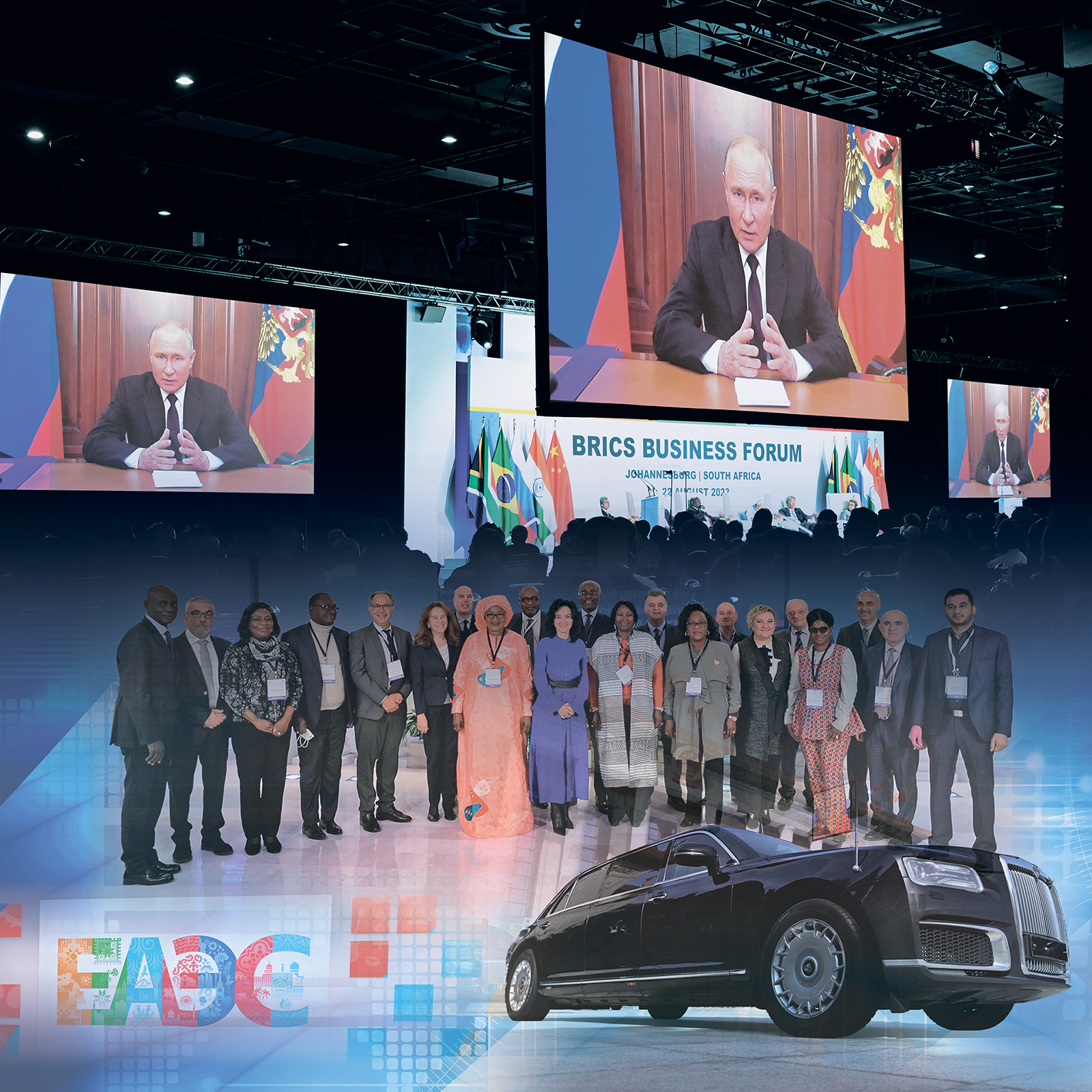
The crisis phenomena challenging the world today have failed to become a sufficient impetus for sustainable global cooperation, as the events of recent years have shown.
To date, the humanity has entered into a new era of skyrocketing changes and large-scale transformation. Due to the “erosion” of the hegemony of the countries of the “collective West”, tendencies towards a redistribution of the balance of world power are intensifying, and the processes of establishing a new multipolar world order, which in many of its aspects is a more democratic and fair system of international relations, are gaining momentum. For many countries in the modern world, the unipolar model is becoming not only unacceptable, but also impossible.
7.1New realities of international dialogue
In 2023, the world community finally recovered from the consequences of the pandemic. After all international restrictions were off, it became obvious that the attempt to isolate Russia completely failed. Amid shaping of a new polycentric world order, a tendency of strengthening positions of the countries of Asia and Africa as international players and Russia’s turn to them has clearly emerged.
These trends were instituted in the “Concept of the Foreign Policy of the Russian Federation” approved in March 2023 by the Executive Order of the President of the Russian Federation. According to the concept our country is considered as “one of the leading centers of development of the modern world” and “a distinctive country- civilization”.334
The Concept emphasizes that in conditions of multipolarity and opportunities for open interaction, it is necessary to strengthen the work of all parts of the system of international relations, including international humanitarian cooperation, aimed at the public opinion of other countries for the sake of “victory in the battle for the minds and hearts of peoples”.335
From the “Concept of the Foreign Policy of the Russian Federation”
- For the purpose of strengthening the role of Russia in the world humanitarian space, shaping a positive attitude thereto abroad, enhancing the positions of the Russian language in the world, counteracting the Russophobia campaign led by the unfriendly foreign states and their associations as well as enhancing mutual understanding and confidence among states, the Russian Federation intends to give priority to (...) developing mechanisms of public diplomacy with the participation of representatives and institutions of civil society with a constructive attitude towards Russia, as well as political scientists, representatives of the expert and scientific community, youth, volunteer, search and other social movements;
- When preparing and implementing foreign policy decisions, the federal executive bodies work with the chambers of the Federal Assembly of the Russian Federation, Russian political parties, the Civic Chamber of the Russian Federation, nonprofit organizations, expert and academic community, cultural and humanitarian associations, the Russian Orthodox Church and other traditional Russian religious associations, business circles and mass media, contributing to their participation in international cooperation.
- The broad involvement of constructive social forces in the foreign policy process promotes national consensus on foreign policy, assists in its implementation, and plays an important role in terms of more effective resolution of a wide range of issues on the international agenda.
In an effort to make up for years of the pandemic downtime, Russia is intensifying the development of mechanisms for public diplomacy and international religious cooperation.
For example, the Eurasian Peoples’ Assembly held a number of international forums both in Russia and abroad, where public and political figures from various countries discussed the tools of public diplomacy. A significant event was the International Competition “Leader of Public Diplomacy”. The competition was successfully held by the Eurasian Peoples’ Assembly for the second time in cooperation with the Civic Chamber of the Russian Federation.
One of the key advantages of public diplomacy is that its subjects – representatives of civil society – are overwhelmingly open to dialogue and ready to work, regardless of the political situation. The public diplomacy as a system of dialogue between nonprofit organizations, foundations, associations, and other civil society institutions remains one of the few channels of communication and interaction with unfriendly states.
Nevertheless, unfriendly countries, in their tenacity on burning the last bridges, deny Russia the right to public diplomacy and impede Russian NPOs, NGOs (Gorchakov Fund, “Russkiy Mir” Foundation, Foundation for Supporting and Protecting the Rights of Compatriots Living Abroad, “Creative Diplomacy” center, etc.) and government structures (Rossotrudnichestvo) that are involved in the implementation of the humanitarian direction of Russian foreign policy. Many public figures, including members of the Civic Chamber of the Russian Fderation, are under Western sanctions, and not only for expressing their own civic position, but often for completely trumped-up reasons.336
The ban on broadcasting Russian information resources and performances of Russian artists abroad, as well as many other examples of the so-called cancel culture, are reflected in the report “Modern Russophobia: ‘Cancel culture’ as a ’totalitarian cult’”, presented in 2023 at the Civic Chamber as part of the international round table of the same name.
Amid current conditions, the consolidation of public and state institutions is reaching a new level and also affects the sphere of international relations. Traditional annual meeting of the Minister of Foreign Affairs of the Russian Federation Sergey Lavrov with the leaders of Russian nonprofit organizations (invited 100 representatives of federal and regional NPOs) took place practically in the format of defending international public projects, and a number of initiatives of members of the Civic Chamber of the Russian Federation enjoyed support from the Ministry of Foreign Affairs.
These are projects aimed at promoting Russian cultural values and local cultural brands, strengthening the position of the Russian language in the world, preserving historical memory and creating a positive perception regarding ethnocultural diversity, and destroying relevant stereotypes, in particular the organization of “cultural landings”. These events included performances by poets and writers of a patriotic nature, screening Russian documentaries and dramas for Russian compatriots and Russian-speaking citizens both in the post-Soviet space and in foreign countries, organizing exhibitions at foreign venues, conducting educational courses for Russian and foreign NPOs engaged in humanitarian or charitable activities in the social sphere, and publishing educational- patriotically-oriented books aimed at children and the younger generation.
The period between February 2022 and August 2023 saw 586 incidents related to “cancel” in various categories.337
Education/Science 48 cases
Culture 98 cases
Sport 144 cases
Various events 18 cases
The Great Patriotic War 66 cases
Other 187 cases
The following organizations actively support NPOs with international projects in the “public diplomacy” format on the territory of the Russian Federation: the Presidential Grants Foundation, Gorchakov Fund, The Vladimir Potanin Foundation, and others. In total, 587 projects were supported within this thematic area. That is why, it is important to note the quantitative and qualitative growth of projects in 2023, as well as the active inclusion of foreign countries in Russian projects.
As examples of large-scale international public projects that can be pointed out are International Prize “#WEARETOGETHER” (Association of Volunteer Centers), the International Competition-Award for Street Culture and Sports “CARDO” (ALL-RUSSIAN PUBLIC ORGANIZATION OF STREET CULTURE AND SPORTS “Streets of Russia”), the International Business Forum BRICS+ (Autonomous Nonprofit Organization “Leaders of International Cooperation”), and “MISSION DOBRO” (International Volunteer Program). Successful practices in the development of public diplomacy are noted in many areas of public life, including in volunteer activities in the field of physical education, sports, and promotion of healthy lifestyle.
An important area of international cooperation today is the intensification of interaction between youth communities in Russia and foreign countries. Youth public projects stimulate the development of economic, scientific, technological, sports and cultural ties, as well as the creation of international public organizations and associations with tax residency in the Russian Federation.
In accordance with plans to develop international youth cooperation and demonstrate the potential of the Russian Federation to Russian and foreign youth, it was decided to hold the World Youth Festival 2024 in Sochi in March, where representatives of several dozen countries around the world can meet. Even now, all Russian public organizations are inviting their foreign partners to take part in this festival.
The Civic Chamber of the Russian Federation and its partners within the International Association of Economic and Social Councils and Similar Institutions (AICESIS) are planning to hold separate events within the World Youth Festival 2024.
World Youth Festival 2024 in Russia
160 ths. people from 18 countries applied to participate in the festival ~ 400 youth organizations from all over the world joined in its preparation338
20 ths. of Russian and foreign young leaders in the field of business, media, international cooperation, culture, science, education, volunteering and charity, sports, various spheres of public life, as well as teenagers representing various children’s organizations and associations will take part in the festival.339
Teenagers aged 14–17 will also have the opportunity to take part in the festival.
A member of the Civic Chamber, Olga Golyshenkova, headed one of the working subgroups for the preparation of the World Youth Festival 2024. This working subgroup of the Civic Chamber developed proposals for its program. Experts emphasized that the festival requires such integrative formats of events that would simultaneously combine an interactive component, positive emotions and useful knowledge, enabling to talk about very complex things through metaphors that are understandable to everyone.340
7.2Presidency of the Civic Chamber in AICESIS
In November 2023, the two-year presidency of the Civic Chamber in the International Association of Economic and Social Councils and Similar Institutions ended. And this period was sailed through under the main topic “Living in the Online Age: Looming Challenges and Urge for Solutions.”
One of the main directions of activity of the Civic Chamber of the Russian Federation during its Presidency in AICESIS was the renewal of its Articles in order to increase operational efficiency, strengthen the internal structure of the Association, enhance interaction between its members, attract new member countries, and strengthen the recognition and authority of AICESIS at the international level. To improve the AICESIS Articles the Working Group on Amending AICESIS Articles was set up. This group was headed personally by President of the Civic Chamber and President of AICESIS, Lydia Mikheeva, and included representatives of Benin, Guatemala, Greece, Spain, China, Luxembourg, Mali, Russia, France, and the Union of Economic and Social Councils of African Countries. This group worked for two years improving and modernizing the document, and aligning it with modern realities. Of note, the best Russian international lawyers from MGIMO and the National Research University Higher School of Economics were also involved in this work. The result of the work is embodied in a balanced and transparent document that corresponds to the current goals and objectives of AICESIS.
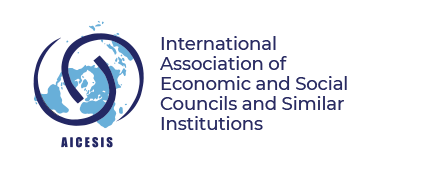
AICESIS is a unique structure that unites more than 70 national civil society institutions and their regional associations in Africa, Asia, Europe, and Latin America.
Despite the fact, that a number of councils of the European Union countries suspended their membership in AICESIS, all traditional procedural events of the Association, as well as conferences, seminars and round tables proposed by the Civic Chamber of the Russian Federation, were carried out as scheduled before.
Under the Civic Chamber Presidency in AICESIS in 2021–2023, the following events were held:
- AICESIS Board meeting (December 14–15, 2021, Moscow);
- AICESIS General Assembly (June 27–28, 2022, Athens);
- AICESIS Board meeting (December 1–2, 2022, Belgrade);
- AICESIS Board meeting (May 11, 2023, Seoul);
- AICESIS Board meeting (October 30, 2023, Moscow); and
- AICESIS General Assembly (November 1, 2023, Moscow).
The final version of the AICESIS Articles was unanimously approved at AICESIS General Assembly on November 1, 2023, in Moscow.
As part of the implementation of the Presidency program, the Civic Chamber set the task of intensifying the exchange of experience and legislative practices in order to develop common approaches in various areas of the digital space. Pursuing this task in 2021–2023, the Civic Chamber held a series of online and offline events dedicated to key priorities of the digital agenda. Despite the restrictions associated with the consequences of the global COVID-19 pandemic and general geopolitical turbulence, the Civic Chamber managed to ensure a productive exchange of views on a wide range of directions.
The events under the aegis of the Civic Chamber, including SPIEF, EEF, and “Community” forum, attracted leading national and international experts, representatives of government and public structures of the AICESIS member countries, civil activists, business representatives, and opinion leaders in the modern digital sphere. This cross-section enabled a number of existing world practices in the digital environment to be summarized, the best examples of the Russian IT sector to be presented, our developments to be compared with similar experiences of foreign colleagues, practices to be shared and a number of joint solutions in the sociohumanitarian refraction of the global digital agenda to be developed.
Following the discussions the Civic Chamber issued a Presidency Report on the topic “Living in the Online Age: Looming Challenges and Urge for Solutions”, which was presented at the meeting of the AICESIS General Assembly on November 1, 2023.
AICESIS General Assembly, November 1, 2023, Moscow
- Of them 51 participants from 16 countries attended in person.
- Delegations from Algeria, Burkina Faso, the Democratic Republic of the Congo, Curacao, and Lebanon came to Russia for the first time.
As part of its interaction with international organizations, the Civic Chamber within its Presidency in AICESIS and in cooperation with representatives of other economic and social councils:
- Initiated a discussion panel “Finding a compromise between national digital regulation and cross-border data flows: prospects and limitations for a free data economy in a post-coronavirus world” at the UNCTAD e-Week forum on April 29, 2022, with the participation of relevant experts from the economic and social councils of member countries of the Association;
- Prepared a report “The Social Economy of Solidarity” for presentation at the 110th International Labour Conference held in Geneva from 27 May to 11 June 2022;
- Prepared a report on “Building Back Better from the COVID-19 and Further Advancing the Implementation of the UN SDGs” for presentation at the High-Level Political Forum of the UN Economic and Social Council (ECOSOC) on July 5-15, 2022 in New York;
- Took part in the meeting of the General Assembly of the Union of Economic and Social Councils of Africa on October 17, 2022 in Rabat;
- Prepared a report on “Social Transition” for presentation at the 111th International Labour Conference, 5–16 June 2023 in Geneva; and
- Prepared a report on “Accelerating the Recovery From the COVID-19 and the Full Implementation of the 2030 Agenda for Sustainable Development at All Levels” for presentation at the High-Level Political Forum of the UN Economic and Social Council (ECOSOC), 15–21 July 2023 in New York.
The Civic Chamber AICESIS Presidency Report on “Living in the Online Age: Looming Challenges and Urge for Solutions”
7.3Development of international relations at the bilateral level
In the context of rethinking interaction strategies within bilateral relations, Russia’s ties with Asian countries, as well as Latin America countries, are currently being strengthened and proliferated.
Increased interaction between public organizations, including the Civic Chamber of the Russian Federation, with long-standing foreign partners and intensified establishment of new contacts with friendly institutions in the countries of the Global South became a new sustainable trend in 2022–2023.
In this regard, over the year the Civic Chamber held a valuable meeting with delegations of its traditional partner the China Economic and Social Council.341
Of note, the fast development of bilateral relations with the Committees for the Defense of the Revolution of the Republic of Cuba. Participation of delegations of the Civic Chamber in the V International Conference “For Balance in the World” and in the X Congress of the Committees for the Defense of the Revolution of the Republic of Cuba, an official visit of the delegation of the Committees to Moscow at the invitation of the Civic Chamber in May – June 2023, as well as the participation of the Cuban delegation in the AICESIS General Assembly as guests of honor indicate a coincidence of interests in the development of cooperation between Russia and Cuba, including at the level of civil society.
In 2023 the Civic Chamber of the Russian Federation members held 56 meetings
with diplomats, representatives of executive and legislative authorities, delegations of public organizations, and associations from Africa, Europe, South America and Asia.
The logical result of such work was the signing of a Memorandum of understanding and cooperation between the Civic Chamber of the Russian Federation and the Committees for the Defense of the Revolution of the Republic of Cuba.
Within the official visit to Moscow of the delegation of the Economic and Social Council of the Central African Republic – led by its President Alfred Tainga Poloko – a Memorandum of understanding and cooperation was signed between the Civic Chamber and the Economic and Social Council of the CAR.
Another bilateral memorandum was signed between the Civic Chamber and the National Economic, Social and Environmental Council of the Algerian People’s Democratic Republic.
Cooperation between international religious institutions is actively developing as well. For example, in 2023, representatives of Russian spiritual organizations interacted with Islamic and Buddhist leaders, the political leadership of Indonesia, Iran, Cambodia, Kyrgyzstan, Lebanon, Malaysia, Saudi Arabia, Senegal, and Uzbekistan.
7.4Support for compatriots abroad
To date, due to increased international tension, the role of civil society institutions in joint work with the state to implement a comprehensive system of measures to protect the rights and legitimate interests of our compatriots abroad is growing significantly.
In the context of new global challenges, no less attention is required the joint work of the state and civil society to resolve issues of preserving common historical memory and national identity, problems of Russian- language education abroad, educating the younger generation, and developing the media of compatriots, including in the digital environment.
The task of developing effective forms and methods of protecting the rights of compatriots in modern conditions, as well as countering manifestations of Russophobia, attribute to the members of the Civic Chamber, specifically, when they regularly hold meetings with compatriots in various countries. And these meetings take place not only to provide information support, dispell fakes and propaganda myths about Russia predominant in the media of foreign countries, but also to collect topical issues of compatriots, and then try to deal with them on return.
Such issues include the implementation of joint initiatives with organizations of Russian compatriots aimed at promoting cultural, spiritual and moral values, the Russian language, and preserving historical heritage, in particular through the restoration and maintenance of military graves.
To date the agenda for interaction also includes issues of tourism, export of Russian educational services, assistance to Russian schools and centers for studying the Russian language abroad.
A separate area of work is the protection of compatriots convicted in various countries. The Civic Chamber of the Russian Federation, the Russian Lawyers Association, the Foundation for Supporting and Protecting the Rights of Compatriots Living Abroad, in collaboration with the Office of the Commissioner for Human Rights, the Ministry of Foreign Affairs of the Russian Federation, and the Ministry of Internal Affairs of the Russian Federation, monitor the cases of convicted Russian citizens and are in contact with attorney associations representing their interests in courts of foreign countries.
As a result, on March 10, 2023, Yuri Mel returned to Kaliningrad from Lithuania after serving a nine-year sentence. Yuri Mel is a former tank driver of the Soviet Army, a participant in the events in Vilnius to restore the Constitutional order on January 13, 1991. This deliverance became possible thanks to the interaction of the Civic Chamber and government agencies in the consistent implementation of specific actions to rescue Yuri Mel from a Lithuanian prison.
The release of Yuri Mel is a joint victory of civil society and state institutions of power, which in practice have implemented mechanisms for the protection of compatriots.
7.5International election observation
Since 2012, the Civic Chamber of the Russian Federation has been working on developing public observation of elections and referendums in Russia and abroad. Members of the Civic Chamber take part in monitoring presidential and parliamentary elections and referendums in various countries, if the possibility of their accreditation is provided for by local electoral legislation.
Previously, members of the Civic Chamber had experience observing elections as part of observation missions of the CIS Interparliamentary Assembly, OSCE and other international missions. The independent organization of observation missions with the support of the Russian Ministry of Foreign Affairs commenced by the Civic Chamber in 2021.342 In 2021–2022, the Civic Chamber deployed missions in 14 countries.
In 2023, the Civic Chamber continued its activities in the field of international election observation. Observation missions were deployed in Guinea-Bissau, Cambodia, Zimbabwe, and Eswatini. The observation mission of the Civic Chamber worked for the first time in Latin America, namely during the general elections in Argentina. An observation also took place during the presidential elections in Uzbekistan.
An important event in the development and systematization of the activity of the Civic Chamber on the track of international observation was the publication at the beginning of 2023 of a Special Report on the results of observation of elections abroad in 2022.
The report summarized the work of Civic Chamber observers in ten countries where missions had been deployed.
The report published by the Civic Chamber is a unique publication that provides relevant experts and specialists from Russia and foreign countries with a careful analysis of electoral systems and electoral practices. The foreword to the report was written by the Russian Foreign Minister, Sergei Lavrov, and Chairperson of the Central Election Commission of Russia, Ella Pamfilova.
Election observation missions of the Civic Chamber abroad

Presidential elections
June 4, 2023
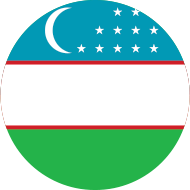
Presidential elections
July 9, 2023
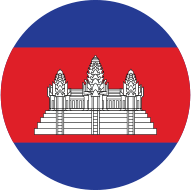
Parliamentary elections
July 23, 2023
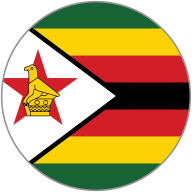
General election
August 23, 2023
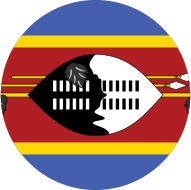
General election
September 29, 2023
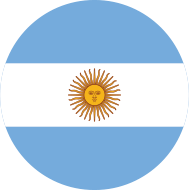
General election
October 22, 2023
- Introduction
- 1 Solidarity
and unity- Challenges for the country — challenges for society: unity based on trust and support
- Integration of the new regions into the all-Russian legal and civil space
- Support of the SMO participants and veterans and their families
- Retraining, social adaptation and medical and psychological assistance to the SMO participants
- Participation of members of the Civic Chamber of the Russian Federation in social projects related to the SMO
- 2 Implementation of the Fundamentals of State Policy for the Preservation and Strengthening of Traditional Russian spiritual and Moral Values
- 3 Intellectual
leadership- Ensuring technological leadership
- Education in the context of new geopolitical and socioeconomic conditions
- Enhancement of the Russian higher education system
- Public projects and initiatives to support sovereignty strengthening in key areas of social and governmental life
- Creative industries and the sovereignization of intellectual products
- 4 NPOs: new realities —
new solutions - 5 Sustainable
development - 6 Public
oversight - 7 International
cooperation - Conclusion